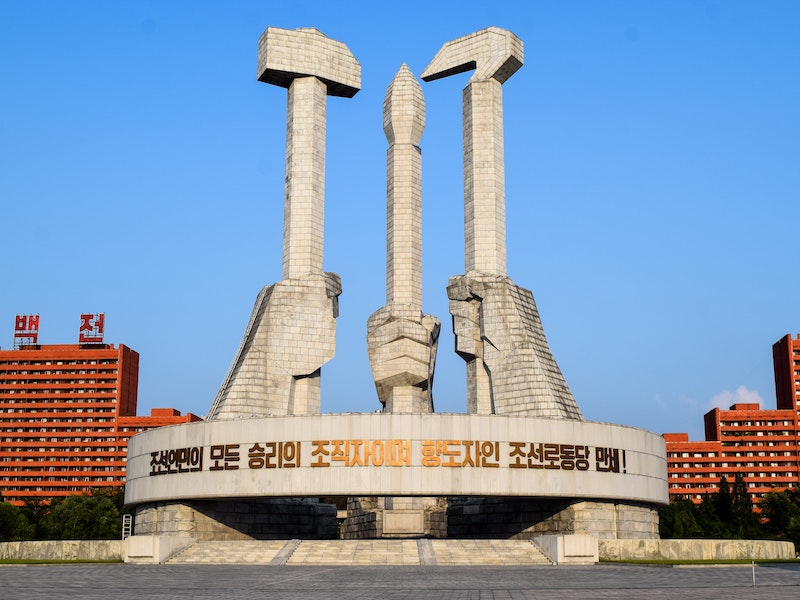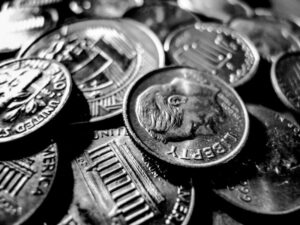At first glance, America, the home of capitalism and the land of the free, couldn’t be any different from North Korea, a totalitarian communist state. But the two countries have a lot more in common than meets the eye.
At first, it seems like a stretch to compare the two counties. With a horrendous human rights record, its total isolation from the outside world, and its dismal economic performance, the Democratic People’s Republic of North Korea symbolises a failed ideology.
The United Nations estimates it’s Gross Domestic Product (GDP) in 2020 was $16.3 billion, making the North Korean economy the 125th largest (or smallest) in the world. It ranks just behind Burkina Faso, Gabon and Mali. None of those countries gets anywhere near the attention North Korea does, but then they’re not governed by a totalitarian communist state.
And it is the communist part that makes it get so much attention. Politically, economically, and militarily, it is irrelevant and no harm to anyone. But it’s that fact that makes it even more valuable in shining a light on an ideology that once posed a threat to capitalism.
While the Cold War raged, communism was a genuine threat to capitalism’s global dominance. Now, America uses it as a caricature, a political weapon that, on the one hand, reinforces the merits of embracing capitalism and, on the other, highlights the dangers of embracing communism.
A symbol of a failed ideology
When you compare North Korea to South Korea, the obvious success of capitalism becomes even more stark. South Korea, having embraced a capitalist economic model, is often considered an economic miracle. From being one of the poorest countries in the world in the 1960s to being the tenth largest economy in the world in 2020. With a GDP of $1.65 trillion, the South Korean economy is over 100 times larger than North Korea.
The incredible success of one, when compared to the dismal failure of the other, highlights how much better markets are at stimulating growth.
Aside from showing how not to govern a country, North Korea shows that extremism always leads to bad outcomes. This is an authoritarian, brutal, corrupt regime that has completely lost touch and perspective of why a government does what it does. The communist party rules to serve the interests of a small elite who reap the benefits of conforming to a crooked ideology.
While it labels itself the Democratic Republic, the title is a sham. A true democracy, with a government that is held accountable to its people, is the bedrock of a healthy, thriving society. A despotic regime that creates rules to benefit itself is the exact opposite.
That is not a nation. It is a country ruled with an iron fist to benefit a tiny minority.
The elite in North Korea aren’t concerned with creating social wellbeing through the ideology of communism. They take advantage of that ideology because they know it makes an otherwise irrelevant country, relevant.
Balance is key
And it is extremism to an ideology where the similarities between America and North Korea become clear.
Neoliberalism, an ideology that has dominated in America since the 1980s, centres on the belief in the power of free, unfettered markets. That is, markets work better when they are free from government interference.
Supporters of free markets believe the smaller the government, the better—the more freedom for people and individuals, the better the economic outcomes. As if a truly free market detached from government regulation will lead to some economic nirvana.
The thing about this extreme belief is that it creates blind allegiance to an ideology in just the same way as it does in North Korea. And the allegiance to neoliberalism in America has just as tragic consequences as it does in North Korea.
Granted, the effects are not as extreme, and America is clinging to being a functioning state, but only just.
If companies and individuals have the freedom to maximise profits, they will do so at the expense of society because these companies are driven by their own self-interest, not that of society. And so, the extreme belief that free markets can solve all social problems leads to negative social outcomes.
Balance is key
Government plays a key function in a healthy social system. But, as the failed ideology of North Korea shows, too much government is just as bad as too little.
As with everything in life, balance is key. And yet, striking that balance is notoriously difficult because people are blinded by the ideology that dominates their society.
The supporters of free-market capitalism are those who benefit from it. A rich elite that has crafted a society of the have’s, and the have not’s. The have’s are a rich elite, the 1%, who have captured politics and create laws for their own self-interests.
This creates a vicious cycle, where the richer the 1% become, the more influence they have over lawmaking, making it easier for them to become even richer, creating increased inequality.
Not so dissimilar
The irony then is that while the ideologies are poles apart, you have similar outcomes. Individuals with enormous power are sucking wealth away from society for their own self-interests.
That wealth could finance welfare programmes to support the poorest in society.
America has some of the highest levels of inequality in the world. Yet, levels of inequality continue to rise, despite its disastrous social impacts.
While North Korea is undoubtedly a shambles, a failed state that has lost sight of the whole point of a government, America is hardly a shining light of how to do things.
Both are victims of extremism, just at opposite ends of political poles. One gives too much power to individuals in society; the other gives too much power to the government. Both have disastrous social impacts.
What we need is an injection of balance. To move away from extremes and embrace an economy where markets are allowed to thrive, but those markets are strongly regulated by governments to ensure that they create positive social outcomes. Whenever extremism is provided with a platform to infect society, it is citizens who end up suffering; they always do.



